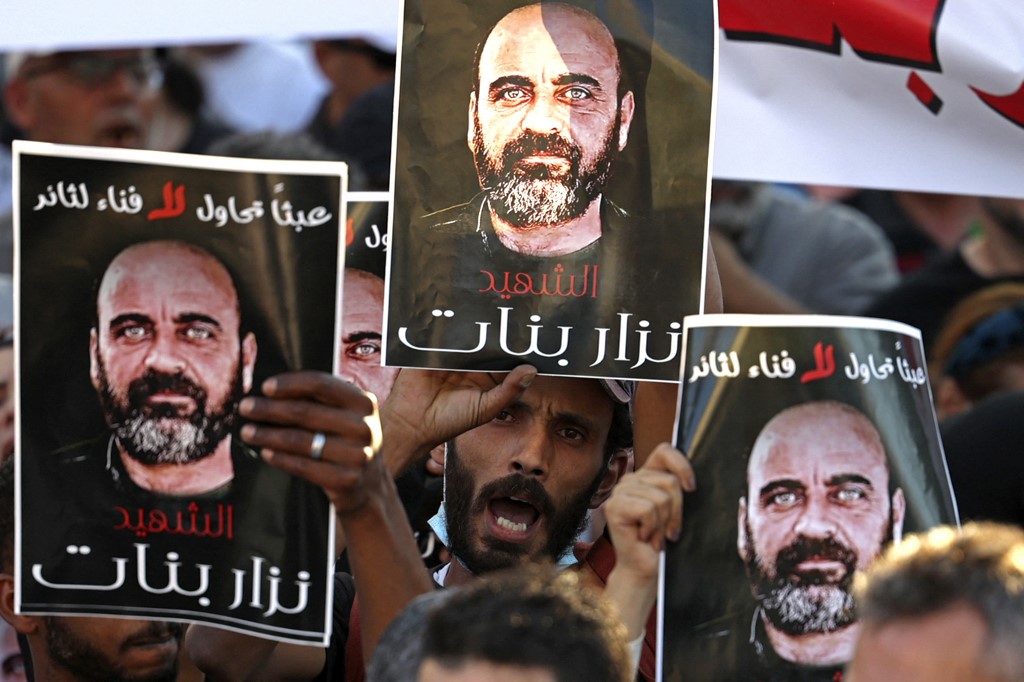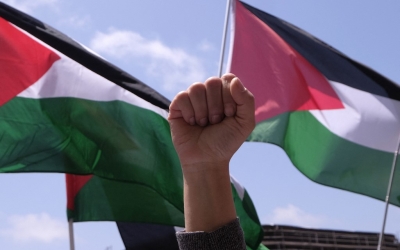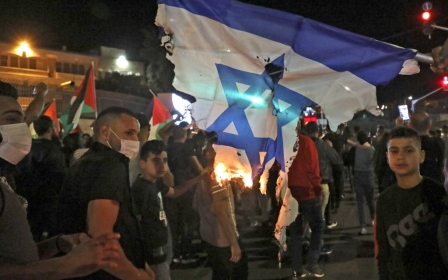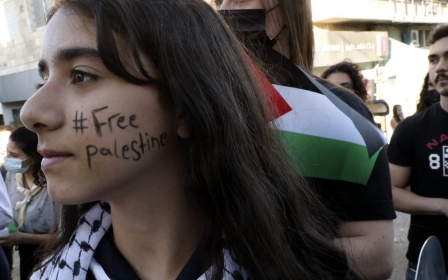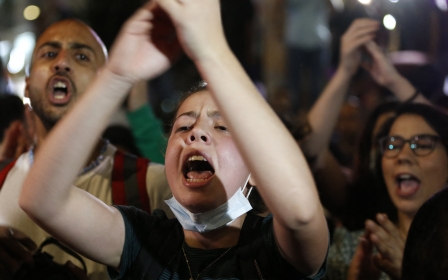Israel-Palestine: 2021 breathed new life into anti-colonial struggle
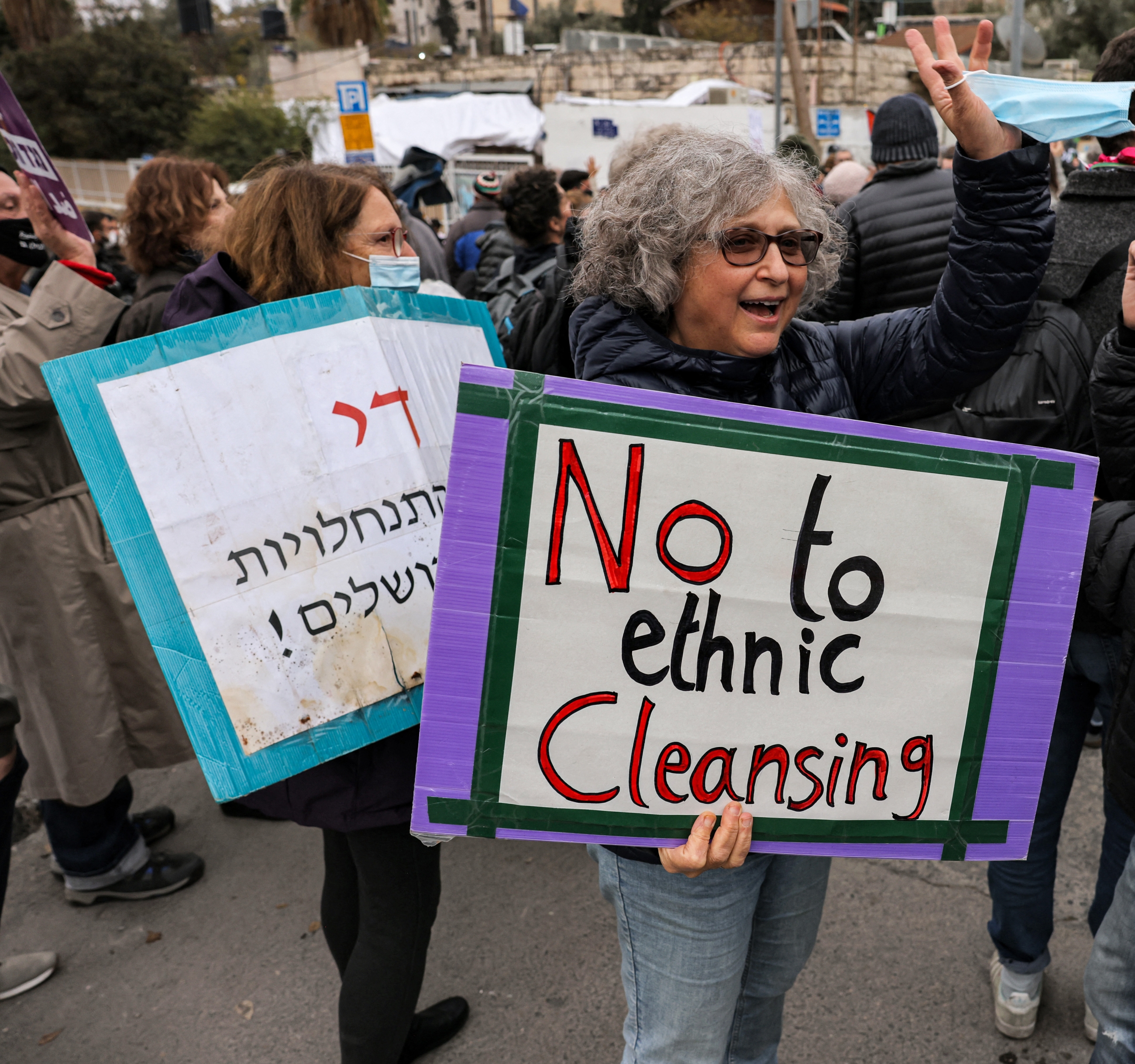
Any achievements in the Palestinian arena have accumulated so slowly and erratically that it has become exceedingly difficult to assess what the future holds, particularly in the context of an Israeli government that could be one of the most dangerous in the country’s recent history, threatening the very foundations of the Palestinian national liberation movement.
The ruling coalition regards any issue relating to the Palestinian question - such as ending the occupation or determining a two-state solution - as politically contentious, keeping it off the official government agenda. The current government has pushed ahead with its drive to bolster the ideological goal of colonisation, facing scarcely any opposition, beyond that of the United Arab List.
The Palestinian people still manage to forge hope and create possibilities, wherever they are
Still, 2021 has been a tumultuous and eventful year. Palestinian popular mobilisation inside Israel has reverberated across Israeli centres of power, laying bare their policies towards organised crime and weapons sales among Palestinians with Israeli citizenship. Such policies serve as a means of controlling and fragmenting the Palestinian struggle.
At the same time, the monumental battle of the residents of the Jerusalem neighbourhood of Sheikh Jarrah, and the uprising last May across all of historic Palestine, have fuelled a collective political consciousness bolstered by the will of the people.
The Palestinian prison break from Gilboa, alongside popular mobilisations around prisoners’ rights and settler encroachment, are testament to how the Palestinian people still manage to forge hope and create possibilities, wherever they are.
New MEE newsletter: Jerusalem Dispatch
Sign up to get the latest insights and analysis on Israel-Palestine, alongside Turkey Unpacked and other MEE newsletters
Political black hole
But Palestinians are paying for this hope with their lives. And their political leaders have failed to exploit the openings created by public mobilisation in order to advance the national liberation struggle. Palestinian political culture has become a black hole, swallowing up any achievements won by the people, with nothing delivered in return.
Any possibility for internal change comes up against the reality of collective inertia. The killing of prominent Palestinian activist Nizar Banat last year underscored the lack of democratic options that could deliver real change for Palestinians.
At any rate, real change cannot come about through the mere replacement of individuals in positions of leadership. The entire Palestinian political, civil and factional arena must come to terms with its profound crisis, which is the product of the prevailing political culture and balance of power.
Holding on to hope has become a much more costly affair for Palestinians, as the occupation creeps ever further outwards, undeterred by Palestinian opposition and resistance. Palestinian popular resistance has largely become confined to specific, isolated locales, fragmented by Israel’s system of bypass roads and the separation wall.
Further complicating the path towards resistance is the reliance of many Palestinians on the Israeli economy for employment, with virtually no rights for Palestinian workers, and the fierce competition over permits to work in Israel, deepening the web of dependency.
Collective consciousness
There is no panacea to effect radical change within the Palestinian arena, but the continued support of Palestinians for any act of struggle is vital - whether it be in Jerusalem, Gaza, Lydd, Haifa, Ramallah or the Naqab (currently threatened with ethnic cleansing). Such mobilisations, along with protests in support of prisoners and other issues, must be supported.
In times of crisis, we must place our hopes in the small battles - which, if won by those who wage them, can create an opportunity for a wider and more expansive moment of upheaval. The frenzied events of 2021 have shown that no matter how deep our crisis, Palestinian popular initiatives can still breathe new life into the struggle.
The voice of the people clamours to be heard, and we are now experiencing a moment of collective consciousness - especially among the youth - that recognises the colonial reality in Palestine and the historic mission of decolonisation.
This comes hand-in-hand with the realisation that the Palestinian people must shoulder their burdens wherever they are, which can be done in tandem with the Palestine international solidarity movement.
Israeli intelligence circles repeat a common phrase that has become almost axiomatic: if we no longer see any signs of a popular intifada, then their very absence points to its imminence. Indeed, the people do not simply rise up in response to the occupation; their movement is generated through the spirit of the people. It is upon this spirit that we must place our hopes.
The views expressed in this article belong to the author and do not necessarily reflect the editorial policy of Middle East Eye.
Middle East Eye delivers independent and unrivalled coverage and analysis of the Middle East, North Africa and beyond. To learn more about republishing this content and the associated fees, please fill out this form. More about MEE can be found here.



